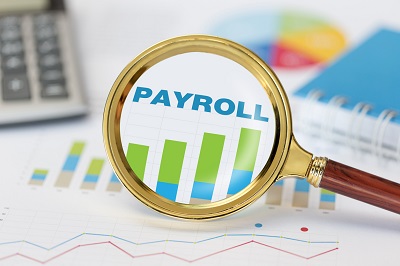Seattle Payroll Expense Tax Impacts Businesses With High-Income Employees
By Olivia E. Gonzalez | Related Practice: Business
In January, the City of Seattle enacted a payroll expense tax that is expected to impact around 1% of Seattle businesses. The tax applies to every business with $7 million or more in payroll expenses within the city limits for the prior calendar year and at least one Seattle-based employee with annual compensation of $150,000 or more in the current year. For example, the payroll expense tax would apply to a business that has 60 employees, five of whom will each earn an annual salary of $150,000 in 2021, and a total payroll expense of $8 million in 2020. The tax is imposed on the business, not the employees.

A “payroll expense” means gross compensation paid by a business in Seattle to its employees, if one of the following conditions is true:
- The employee is primarily assigned within Seattle. “Primarily assigned” means the business location of the taxpayer (i.e. the employer) where the employee performs his or her duties;
- The employee is not primarily assigned to any place of business for the tax period but the employee performs 50% or more of their work in Seattle for the business during the tax period; or
- The employee is not primarily assigned to any place of business for the tax period and the employee does not perform 50% or more of their work in any city, but the employee resides in Seattle.
For purposes of whether a business is subject to the tax, “compensation” is broadly defined. It includes remuneration, net distributions, or incentive payments (including guaranteed payments), whether based on profit or otherwise, earned for services or work, paid directly or through a third-party agent, and whether in cash, property or the right to receive property. Compensation does not include payments to an owner of a pass-through entity that are not earned for services or work, such as return of capital or investment income, or other income from passive activities. For example, compensation would include yearly salary, including bonuses, but not stock dividends.
Taxes are based on the amount of the business' annual Seattle-based payroll expense and the amount of annual employee compensation of at least $150,000. For instance, the tax imposed on a business with total annual payroll expenses of less than $100 million and annual employee compensation between $150,000 and $399,999.99 is 1.7%, see below for how the tax percentages are calculated based on payroll expenses.
| Payroll expense of less than $100 million | Payroll expense of $100 million but less than $1 billion | Payroll expense of $1 billion or greater | |
| Annual compensation $0 - $149,999.99 |
N/A | N/A | N/A |
| Annual compensation $150,000 - $399,999.99 |
Rate = 0.7% | Rate = 0.7% | Rate = 1.4% |
| Annual compensation $400,000 or more |
Rate = 1.7% | Rate = 1.9% | Rate = 2.4% |
| ***Beginning January 1, 2022, and on January 1 of every year thereafter, the dollar threshold and exemption amount will be adjusted for inflation. | |||
Businesses with payroll expenses of less than $7 million, grocery stores, and independent contractors whose compensation is already included in the payroll expense of another business subject to the payroll expense tax are among those who are exempt from the tax.
The first tax return and payment of the payroll expense tax is due on January 31, 2022, and must be filed on a quarterly basis for subsequent periods thereafter.
If you have specific questions regarding how the payroll expense tax could impact your business, contact a member of the Stokes Lawrence Business Group.
